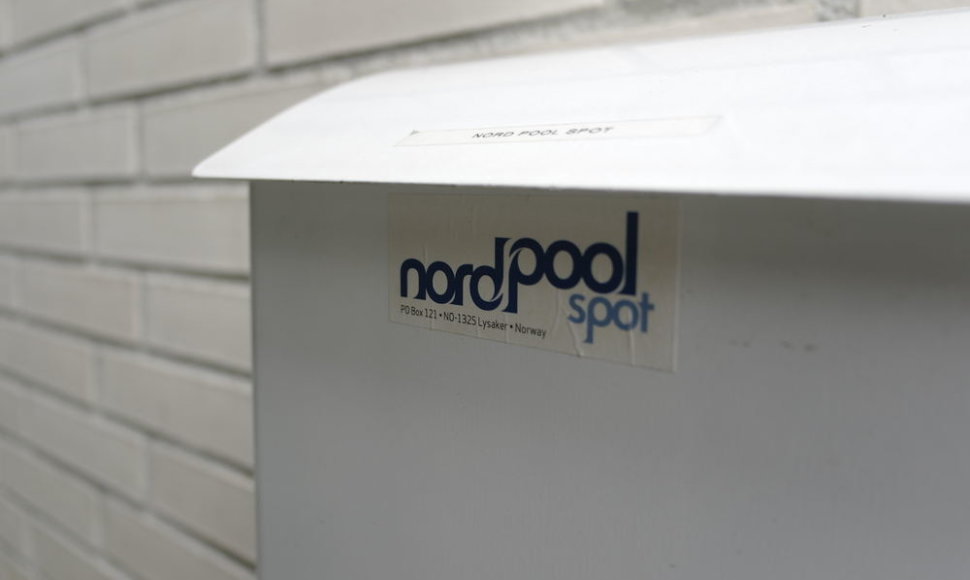“Today is a very important day. Today Lithuania joins the electricity trading system of Nord Pool Spot. We are integrating in the European electricity system consistently and gradually. This day means that our electricity trading system meets all the standards of Nord Pool Spot, including those of transparency and competitiveness,” Prime Minister Andrius Kubilius told the reporters at the media briefing on Monday.
“Trade in electricity will be absolutely transparent. We cannot even seek to get information – who offered to buy electricity, what the quantity and the price was, and who wanted to buy electricity, and what the quantity and the price was,” Energy Minister Arvydas Sekmokas said.
Meanwhile, Virgilijus Poderys, CEO of Lithuania’s electricity transmission network operator Litgrid, told the reporters that Latvia’s integration in Nord Pool Spot was important for Lithuania as well.
“We are waiting for Latvia to integrate from 1 January, then the three Baltic countries will become a united submarket in the Nordic market. Just for comparison, the settled price in Lithuania is approximately 24 Lithuanian cents (6.95 euro cents) [per 1 kWh] now, whereas in Estonia it’s approximately 10 cents. It’s because Latvia is not part of Nordic trading system. We hope and want Latvia to join Estonia and Lithuania on 1 January,” he said.
Nord Pool Spot replaces the local Lithuanian electricity exchange, which was managed by Lithuania’s electricity market operator BaltPool and followed the principles of Nord Pool Spot.
Nord Pool Spot runs the leading power market in the world with some 350 companies from 20 countries trading in electricity on its platform. The exchange is owned by the Nordic transmission system operators.
Hails from analysts
Launch of trading by Nord Pool Spot in Lithuania is a symbolic step towards single European electricity exchange, Lithuania’s analysts have said.
“Lithuania will only get more possibilities to attract a much wider range of electricity sellers and to get lower prices of electricity after the building of power links between Finland and Estonia (in 2014) and between Lithuania and Sweden (in 2015). Of course, participation in the single European electricity exchange involves possibilities both to acquire electricity at competitive prices and to sell electricity generated in Lithuania. Let’s hope that we will have both the need to acquire and a possibility to sell electricity generated in Lithuania after a decade,” Nerijus Mačiulis, chief economist at Swedbank Lithuania, said in a commentary on Monday.
Žygimantas Mauricas, chief economist at Nordea Bank Lietuva, said that Lithuania’s integration in the Nordic electricity exchange Nord Pool Spot, which was one of the most advanced and the largest in the world, would increase transparency and competition on Lithuania’s electricity market and would open wider possibilities for Lithuania’s companies and households to choose the cheapest electricity supplier.
“Integration in the Nordic and later in the entire European electricity market will eventually provide a possibility for Lithuania’s companies to acquire electricity generated in other countries at the prices similar to the prices offered to their competitors in the neighboring countries, which will be positive for the competitiveness of Lithuania’s businesses as it would drive down the risks of unfavorable developments in electricity prices,” Mauricas said.
Nord Pool Spot runs the leading power market in the world with some 350 companies from 20 countries trading in electricity on its platform. The exchange is owned by the Nordic transmission system operators.
2012 06 19
Lithuania joins Scandinavian electricity market Nord Pool Spot
Trade in electricity in Lithuania will become more transparent, Prime Minister and Energy Minister said as Scandinavia’s Nord Pool Spot, the largest market for electrical energy in the world, launched operations in Lithuania on Monday.
Report mistake
Successfully sent
Thank you












